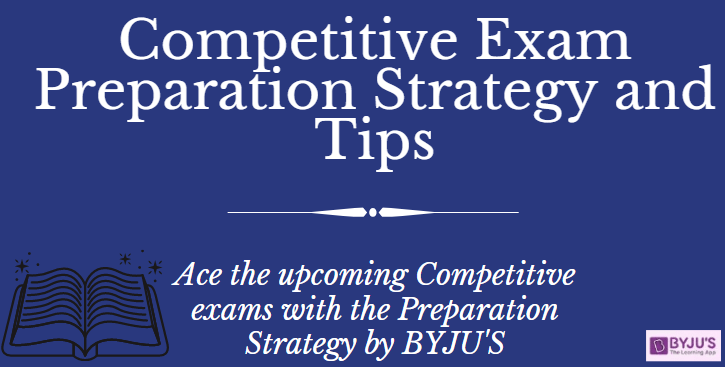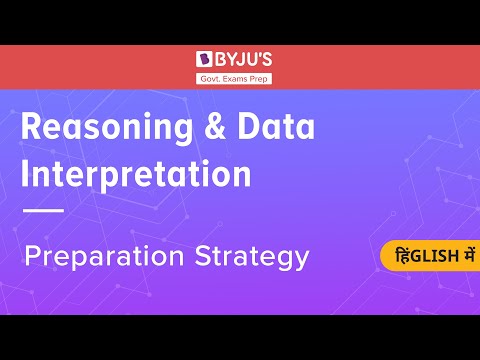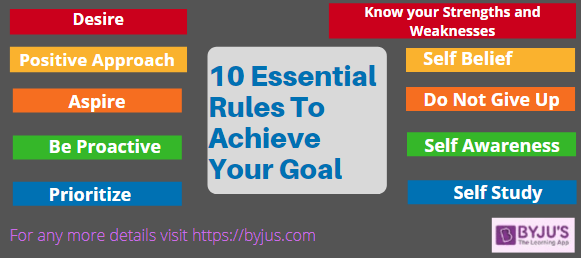The correct approach and strategy is the key to qualify any competitive exam that a candidate aspires to crack.
In this article, we will discuss in detail the major competitive exams conducted in the country, along with the preparation strategy, syllabus, important topics and evaluation of these examinations.
For latest notifications regarding the upcoming competitive exams, candidates can visit the linked article.
| Table of Contents: |
Before moving forward and learning more about the correct approach for preparation and tips to successfully crack the exam, it is important for an aspirant to know why the Government sector is highly sought for growth and career prospects.
Interested aspirants can also know more about the various Government exams at the linked article.

Why Government or Bank Jobs?
In India, the Government sector is one of the largest employment providing sectors and every year lakhs of candidates are given an opportunity to join this sector and enjoy the perks of being a Government employee.
Given below are the major benefits of cracking the various competitive exams to get appointed in the Government, Insurance or Banking sector:
- Job Security: There is a hundred percent job security for employees in the Government sector
- Financial Security: It is a well-known fact that the income, perks, benefits and allowances contribute as one of the major reasons for the attraction of candidates in this sector
- Status Quo: One of the most respectable industries to work in is the Government or the Banking industry
- Work-Life Balance: With scheduled working hours, there is a proper balance between work and personal life
- Contentment: Qualifying the competitive exams and joining any respectable Organisation gives the candidates a sense of achievement and contentment
For detailed information regarding the upcoming competitive exams, aspirants can refer to the links given below:
| Bank Exams | Insurance Exams |
| Government Exams after Class 12th | SSC Exams |
| RRB Exams | Upcoming Bank Exams |

List of Major Competitive Exams
Given below is the list of all major competitive exams which are conducted in the country. Aspirants can choose from the exams and posts given below and based on their eligibility criteria appear for any of the given exams.
- SSC CGL (Combined Graduate Level Exam)
- SSC CHSL (Combined Higher Secondary Level)
- SSC JE (Junior Engineer)
- SSC CPO (Central Police Organisation)
- SSC GD (General Duty Constable)
- SSC MTS (Multi Tasking Staff)
- SSC Stenographer
- RRB ALP (Assistant Loco Pilot)
- RRB NTPC (Non-Technical Popular Categories)
- RRB JE (Junior Engineer)
- RRB Grade D
- UPSC CAPF (Central Armed Police Forces Assistant Commandant)
- SBI PO (Probationary Officer)
- SBI SO (Specialist Officer)
- SBI Clerk (Junior Associate and Customer Support)
- IBPS PO (Probationary Officer)
- IBPS SO (Specialist Officer)
- IBPS Clerk
- IBPS RRB (Regional Rural Bank Exam)
- RBI Grade B (Officer Scale)
- RBI Assistant
- NIACL Assistant
- NIACL AO (Administrative Officer)
- NICL Exam
- LIC AAO (Assistant Administrative Officer)
- LIC ADO (Apprentice Development Officer)
- LIC HFL (Housing Finance Limited)
- FCI Manager Exam
- National Defence Academy Exam (NDA)
- Combined Defence Service Exam (CDS)
- Air Force Common Admission Test (AFCAT)
- National Bank for Agriculture and Rural Development (NABARD)
- Small Industries Development Bank of India Officers Grade A (SIDBI)
- Common Aptitude Test (CAT)
- Assistant Central Intelligence Officer in Intelligence Bureau (ACIO IB)
- Indian Economic Exam Service
- Combined Defence Services Examination (CDSE)
- Graduate Aptitude Test in Engineering (GATE)
Apart from these, the UPSC Civil Services Exam is one of the largest examinations conducted across the country. Interested candidates can learn more about UPSC 2023 at the linked article.
Preparation Strategy for Competitive Exams
There are several questions, which come into a candidate’s mind before starting the preparation for the competitive exams. These questions may include:
- How to start the Government Exam preparation?
- What strategy should I follow?
- Can I prepare for Govt exams at home?
- Can I crack the Government exams in the first attempt?
- What are the tips to crack the competitive exams?
- What are the important topics and syllabus for the exam?
- What strategy and approach to use for the preparation of Government exams?
And the list of questions goes on and on. So, to ensure that a candidate follows the best approach, we bring to you 11 key strategies to crack the upcoming Government exams:
- Set S.M.A.R.T. Goals – Here S.M.A.R.T. stands for Specific Measurable Achievable Relevant Time-Bound. One must keep all these five goals in mind when strategising a study plan. Do not overburden yourself and set achievable goals
- Self Management vs Time Management – Ensure that you set targets which you can achieve. Manage your schedule in a manner that sufficient time can be dedicated to the preparation
- Attend Online/ Offline Classes Regularly – Choosing either online or offline classes in a candidate’s decision but they must ensure that either way they attend the classes on a regular basis and any kind of ignorant behaviour shall affect their preparation
- Revise on a Daily Basis – In most cases, it has been observed that one may understand the topic when being taught but due to lack of revision may end up forgetting such concepts. Thus revising things on a daily basis is a must
- Solve Time-Bound Exercises, Mock Tests & Model Papers – This will give an examination kind of atmosphere and a better understanding of the type of questions which may be asked
- Raise Doubts or Questions if any – Mostly it has been observed that candidates hesitate to ask questions for various reasons but this may act as a hindrance for any competitive exam aspirant. Always ask doubts or questions, if any to ensure that the concepts are extremely clear
- Choose Coaching/ Institutes/ Teachers Wisely – Choose the books, study material and resources wisely. Ensure that either online or offline, sufficient study material is provided, separate time for clearing doubts is given and proper revision and tests are conducted
- Get Your Concepts Clear – The key to answering any questions is by having conceptual clarity. Ensure that every part of the concept is clear and understandable
- Focus – Even if a candidate manages to devote 3 to 4 hours a day for preparation, an absolute focussed study must be done during this time. No kind of distractions must be entertained
- Solve Previous Year Question Papers – To understand the standard of exam and the exam pattern, the best solution is referring to the previous year question papers
- Be Regular, Well Planned & Disciplined – Having a proper study plan is a must. It is important that before one starts the preparation, he/she is well aware of the subjects, topics, exam pattern and the selection process for the respective exams so strategise a time table devoting equal time to all subjects
Section-wise Syllabus for Competitive Exams
The syllabus for government exams is vast but there a few common subjects which are a part of almost all major competitive exams.
Discussed below is the syllabus for each of these sections.
a. Reasoning Ability and General Intelligence
The Reasoning or the General Awareness section is almost a part of all competitive exams and the topics can be classified into two wide categories:
- Logical Reasoning or Verbal Reasoning
- Non – Verbal Reasoning
Candidates can get the detailed syllabus for topics under the verbal reasoning part at the logical reasoning page and ensure that every topic is covered properly and in detail.
Also, for the reference of aspirants, we have given the topic-wise questions in the logical reasoning questions page. Interested candidates can visit the linked article and solve more and more questions based on each topic.
| Related Links | |
| 3 Sutras To Prepare for Reasoning Ability | Tips To Prepare Reasoning for UPSC CSAT |
| Reasoning Preparation for Bank Exams | Logical Reasoning for UPSC |
b. Quantitative Aptitude and Data Interpretation
One of the lengthiest and the most complex sections which are included in almost all Government exams is the Quantitative Aptitude section. Questions in this topic may be asked in the form of:
- Word Problems
- Graphs (Bar, Line, Pie chart, etc.)
- Simplification
The syllabus for quantitative aptitude is vast, and basic knowledge of arithmetic and mathematics shall help candidates attempt questions.
To get the list of topics included in this section, candidates can visit the quantitative aptitude page and refer to the syllabus and accordingly start their preparation.
| Related Links | |
| 10 Simple Maths Tricks and Shortcuts | Shortcut Tricks To Find Square & Cube |
| Preparation Tips for Quantitative Aptitude in Bank Exams | IBPS PO Prelims Quantitative Aptitude Syllabus |
c. English Language/ Verbal Ability
A part of almost all Government exams, the English section is one where candidates tend to lose the maximum marks. This is mainly because of the similar choices given in the options part and limited resources to prepare for this subject.
For the detailed syllabus for English section, candidates can visit the Verbal Ability page.
Candidates must pay special attention to tenses, the rules for prepositions, conjunctions, nouns, etc, along with active passive voice, direct and indirect speech, etc. This is one of the few sections from which questions are not just asked in objective form but descriptive tests are also there for a few exams.
| Related Links | |
| General English for Competitive Exams | Tips To Speak Fluent English in Interview |
| Vocabulary Preparation Tips for Bank Exams | Letter Writing Format |
d. General Awareness and Current Affairs
There is no limit to the syllabus for General Awareness and Current affairs section. Any Government or competitive exam conducted in the country has this section as a part of its syllabus.
The common fields from which questions may be picked for this section are:
- General Knowledge/ Static GK
- Daily News
- History & Geography
- Politics
- Banking Awareness
And the list goes on. Mostly the questions framed are based on any recent event of important across the Globe but this is not mandatory. Current affairs for around 4 to 5 months prior to the examination are also equally important.
Candidates can refer to the set of links given below to ace this section:
| Banking Awareness | Static GK |
| Current Affairs | Daily News Analysis |
| Government Schemes | SSC General Awareness |
e. Computer Knowledge
Not too many questions are asked based on Computer Awareness but it is an easy to score section. The syllabus is not very vast and the topics included are simple and general. So, candidates can easily score well in this section.
Interested candidates can get the basic computer knowledge from the links given below:
| 10 Important Computer Terms | Computer Fundamentals |
| List of Computer Abbreviations | Computer Shortcut Keys |
10 Essential Rules To Achieve Your Goal

There are 10 essential rules which will help candidates crack the upcoming exams. These rules will mainly help candidates look at these exams with a much positive and optimistic approach.
To understand these points for competitive exam preparation strategy, candidates can refer to the point below:
- Having the desire to achieve something is extremely important
- Knowing which subjects are your weakness and focussing more on them is a key preparation strategy. This will ensure that all the topics are equally well prepared
- Being positive and having a positive attitude is a must. Also, having the never give up attitude is also necessary
- Also, one must be self-aware of their progress in terms of preparation and growth and should be able to apprehend which sections need more preparation
- Focus on self-study. This will ensure that you strategise a plan accordingly and devote equal time for preparation of each section and subject
Given below are other links which may help candidates achieve their goal of cracking the competitive exams for the upcoming years:
| Bank Exam Syllabus | SSC Syllabus |
| UPSC Syllabus | RRB Syllabus |
| UPSC CAPF Syllabus | FCI Syllabus |
List of Books for Competitive Exam Preparation
Given below is a list of books which may help candidates ace the upcoming competitive exams and ensure that every topic under the syllabus is covered and well prepared with hundreds of sample questions.
| Government Exam Preparation Strategy – Subject-wise Booklist |
| Reasoning Ability |
|
| Quantitative Aptitude |
|
| English Language |
|
| General Awareness |
|
| Computer Knowledge |
|
The above-mentioned booklist will help candidates get a detailed concept, the different types of questions and sample questions from each topic.
Also, candidates can check out the Government exams preparation tips in the articles given below:
| SSC Preparation | RRB Preparation |
| Bank Exam Preparation | UPSC Preparation – Free IAS Prep |
Government exam preparation is extremely comprehensive and exhaustive, yet if a candidate is prepared well in advance and manages to cover each and every topic under the exam syllabus, he/she can manage to crack the exam in the very first attempt.
For any further assistance, candidates are advised to turn to BYJU’S and get the latest exam information and study material.
Frequently Asked Questions on Government Exam Preparation
Q 1. How to prepare for Government Exams at home?
Q 2. The salary for which Government post is the highest?
Q 3. How to pass Government exams?
Ans. Refer to the following pointers to ace the upcoming Government exams:
- Set a preparation strategy
- Sort out a study plan
- Go through the detailed syllabus and check the exam pattern
- Devote time for self-study
- Analyse previous year question papers
Q 4. How to start a competitive exam preparation?
Q 5. Can I quality the competitive exams with 1 month of preparation?
Q 6. Which Government exams are considered to be the best?
Ans. Given below is a list of most sought after Government exams:
- UPSC Civil Services Exam
- SSC CGL Exam
- SSC CHSL Exam
- RRB NTPC Exam
- UPSC Indian Engineering Service Exam
Comments